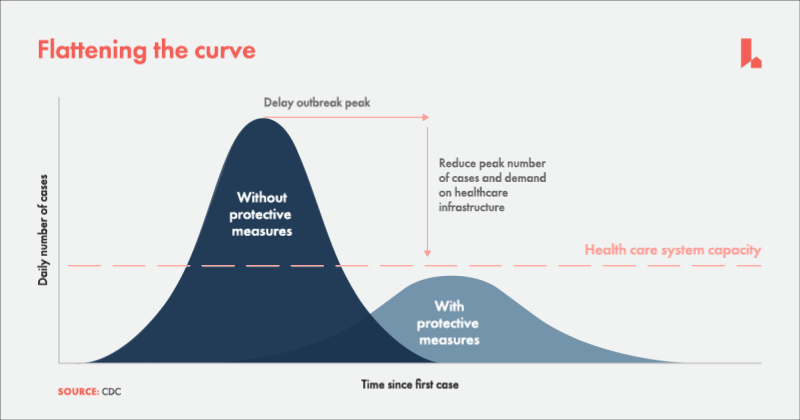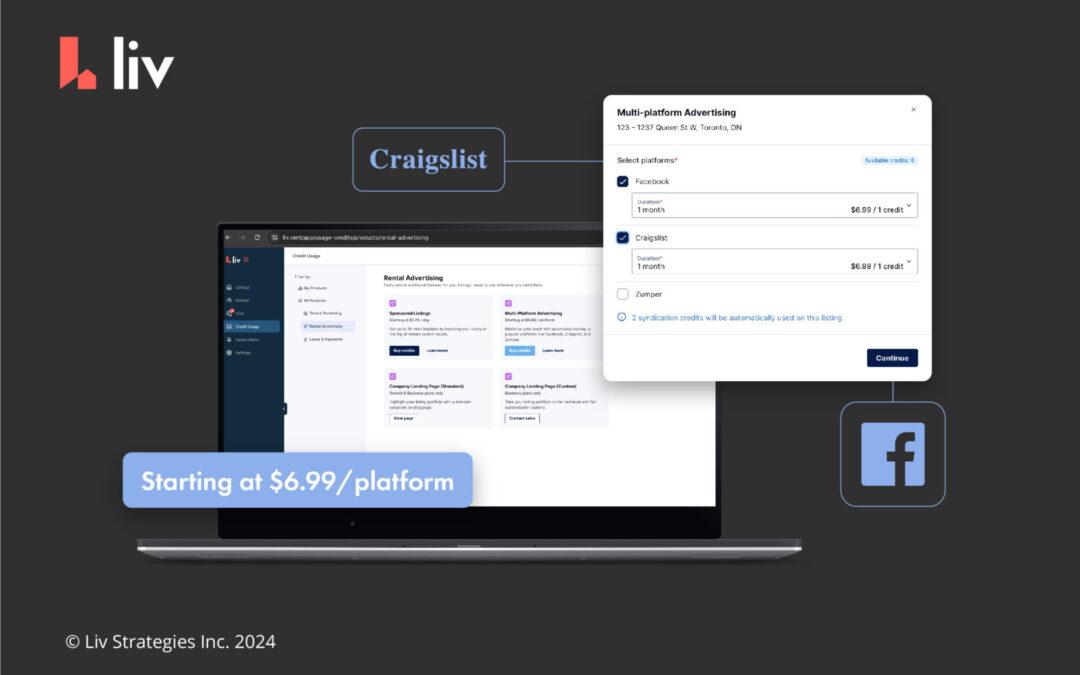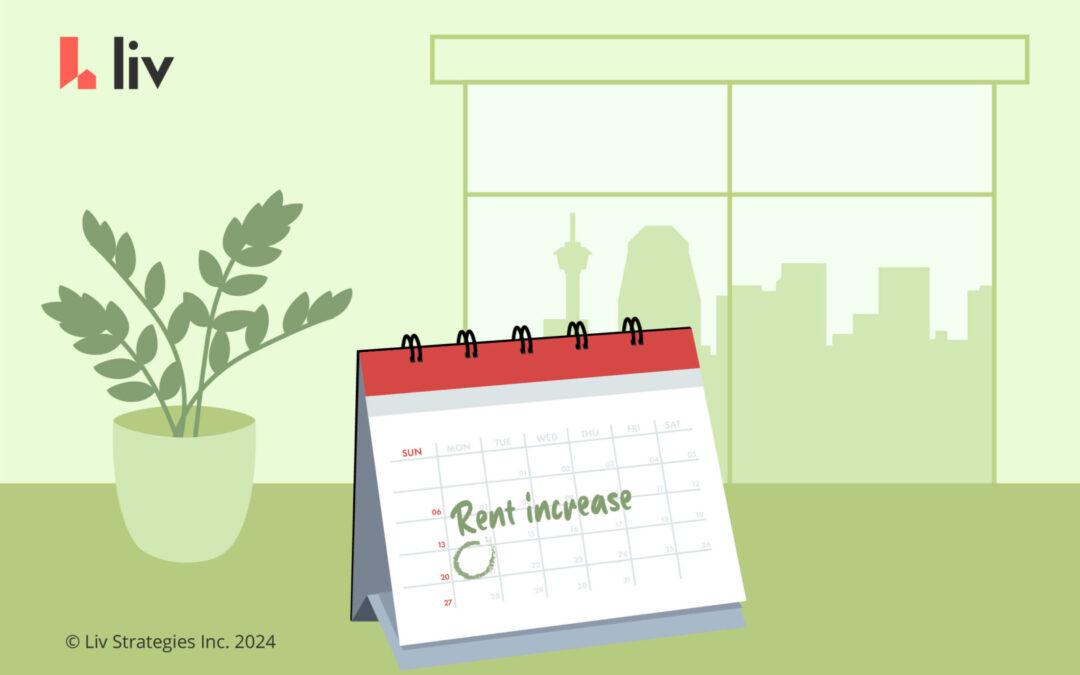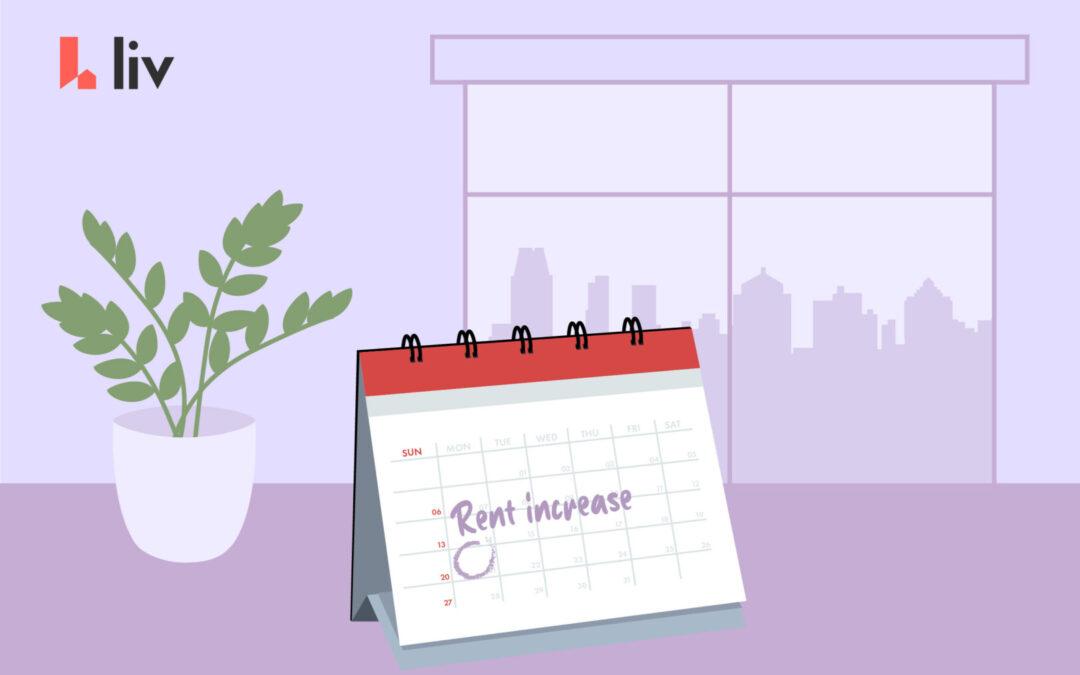[LAST UPDATED: October 6, 2020]
In these unprecedented and uncertain times, managing any and all of your responsibilities can seem daunting. However, knowing that your friends, neighbours and fellow global citizens are sharing this experience, will hopefully add a level of comfort and encouragement.
For landlords, what are your responsibilities to your tenants and your rental property during the Coronavirus (COVID-19) crisis? For tenants, how should you respond?
Table of Contents
Quick Snapshot: COVID-19 Updates
Temporary Rent Supplement – BC TRS: Ended on August 31, 2020. Renters can look into the Rental Assistance Program or the Shelter Aid for Elderly Renters (SAFER) programs, which provide ongoing rental assistance for lower income families and seniors.
Rent Payments: No rent increase is permitted to take effect until December 2020. Notice to increase rent may be presented, however if the tenant pays the increase amount before December 2020, the tenant is eligible for refund of the increase amount. Tenants are required to resume rent payments in full on September 1st, 2020.
Rent Repayment: Landlords and tenants are required to enter into a rent repayment plan for any outstanding rent from March 18th – September 1st. These payments must be agreed upon by all parties, paid monthly, and completed by July 2021.
Eviction Prohibition: Landlords may not issue Notice to End Tenancy for Non-Payment of Rent if the tenant resumes rent payments in full on September 1st, unless the tenant had outstanding rent payments prior to March 18th, 2020. Late payments during the emergency period are not considered “cause” for eviction, and landlords cannot charge fees for any missed rent during the state of emergency. A tenant cannot be issued a Notice to End Tenancy for unpaid rent during the emergency unless they have defaulted on their repayment plan.
COVID-19 FAQ
As a landlord, what are my responsibilities during the coronavirus (COVID-19) pandemic?
Make sure you keep open communication with your tenants and strata council. Ensure you comply with the occupancy limits. Increase sanitation. Provide video tours of available properties and use online, digital contract signing and payments. If a tenant tests positive for the coronavirus, keep the information confidential and allow the regional health authority to inform your neighbours.
As a renter, what actions can I take during the coronavirus (COVID-19) pandemic?
If you are struggling to make rent payments, review the relief initiatives outlined by the federal and provincial governments for any that applies to your situation (e.g. Emergency Care Benefit for workers who don’t qualify for paid sick leave or EI, Emergency Support Benefit for those who are unemployed and don’t qualify for EI). Make sure you end your tenancy properly and understand the rules around rent deposits.
If you successfully petition your landlord to restructure or reduce rent payments, make sure you put your new agreement down in writing, along with the new terms, proposed time frame, and signatures of all parties involved. Please use scanners, e-signatures etc. to minimize contact (See Go Digital section below).
Do tenants have to pay rent during coronavirus?
Yes, they need to continue paying rent during coronavirus. However, in the event mandated restrictions have resulted in job loss or diminished hours/pay in the time between March 18th and September 1st, thus rendering you incapable of paying rent, you must enter into a repayment plan with your landlord.
What financial supports are available to landlords?
In the Government of Canada’s COVID-19 Economic Response Plan and in the BC COVID-19 Action Plan, a number of measures have been introduced that can help landlords. In addition, landlords may be eligible for a Temporary Wage Subsidy as well as the mortgage and tax deferrals outlined in these plans.
What financial supports are available to renters?
The federal and provincial governments have introduced sweeping supports to Canadians whose employment has been impacted by mandated restrictions. They are outlined in the Government of Canada’s COVID-19 Economic Response Plan and in the BC COVID-19 Action Plan including a one-time $1000 payment for those who have lost income or become unemployed in BC, expedited access to E.I., and a freeze on annual rent increases.. The federal Emergency Response Benefit (CERB) of up to $2,000, has ended but it still accepting retroactive applications for the period of August 30-September 26. Further federal funding has recently been announced in the form of the Canada Recovery Benefit (CRB) , Canada Recovery Caregiving Benefit (CRCB), Canada Recovery Sickness Benefit (CRSB).
What digital tools can I use to practice social distancing?
Video conferencing tools such as Zoom, Whereby, and Teams are good alternatives. For team and tasks management, Slack and Asana are recommended. For managing rentals, liv.rent permits digital contract signing and online payments. For groceries, you can shop online with Spud or Instacart. For restaurants, order through UberEats or Doordash.
What support does liv.rent offer?
What COVID-19 benefits & supports have expired?
The Canada Emergency Student Benefit has closed to applications as of September 30th. The Temporary Rent subsidy of $500/month rent relief to eligible applicants has ended. Income tax deadlines and student loan payments were deferred to September 30th. Although CERB ended on October 3rd, retroactive applications for the final period (August 30 to September 26) are still being accepted.
What is the process for ending a tenancy early?
A tenant can end a tenancy by providing one month’s notice on a month-to-month lease. If they are breaking a fixed term lease, however, they may have to pay the landlord for costs of re-renting the unit – like advertising or lost rent. Landlords, however, are obligated to make every effort to limit these costs by trying to rent the unit as soon as possible.
Landlords still need to provide the appropriate notice when ending a tenancy for any reason.
Landlord Update
Quick Overview:
- How should I manage my rentals during the pandemic?
- What financial supports are available for landlords?
- What best practices should I follow?
- What are other tips to keep in mind?

How should I manage my rentals during the pandemic?
 Communication is key. Keeping open communication with your tenant and strata council during these uncertain times is crucial, as well as documenting all such communications. For tenants who may be struggling, share information regarding the latest federal and provincial assistance and relief programs available to them and all Canadians.
Communication is key. Keeping open communication with your tenant and strata council during these uncertain times is crucial, as well as documenting all such communications. For tenants who may be struggling, share information regarding the latest federal and provincial assistance and relief programs available to them and all Canadians.
If you are restructuring or decreasing rent payments for any tenant, it is crucial to get your new agreement in writing, stipulating the proposed time frame, with signatures from all parties on the document.
In addition, if you rely on your tenant to help make mortgage payments, the federal government is permitting mortgage payment deferrals. If you wish to apply for a deferral, follow the steps outlined by the CMHC here.
 Ensure compliance with occupancy limits. The maximum number of permanent residents in a rental unit should be set out in your Tenancy Agreement.
Ensure compliance with occupancy limits. The maximum number of permanent residents in a rental unit should be set out in your Tenancy Agreement.
NOTE: According to the RTA of BC, landlords cannot limit the number of visitors a tenant hosts under reasonable circumstances in the rental unit. During this time, you can only rely on the common sense and decency of your tenants to exercise social distancing and avoid inviting guests over.
 End tenancy properly. Many people are leaving Canada to go home and be with their families during this time, which may require them to end tenancies early. If both parties mutually agree to end the tenancy early, be sure to go through the appropriate process and documentation. For more information, refer to our Landlord Guide to Ending Tenancies.
End tenancy properly. Many people are leaving Canada to go home and be with their families during this time, which may require them to end tenancies early. If both parties mutually agree to end the tenancy early, be sure to go through the appropriate process and documentation. For more information, refer to our Landlord Guide to Ending Tenancies.
 Respect privacy if tenant tests positive for COVID-19. This information is confidential and personal and should not be shared with other tenants. The regional health authority, however, may reach out to neighbours if it is revealed there has been contact. They will also reach out to building management to deal with staff concerns over the infection.
Respect privacy if tenant tests positive for COVID-19. This information is confidential and personal and should not be shared with other tenants. The regional health authority, however, may reach out to neighbours if it is revealed there has been contact. They will also reach out to building management to deal with staff concerns over the infection.
What financial supports are available for landlords?
Mortgage deferrals – Canada’s big six banks will allow mortgage payment deferrals for up to six months. If you find yourself in this situation, follow the guidelines outlined by the CMHC to successfully defer your payments. (Source: globalnews.com, financialpost.com)
Tax Extensions – The federal government has extended the tax filing deadline to June 1 from March 31st and deferred tax payments until after Aug. 31 for tax payments due between now and before September.
Small Business – A Temporary Wage Subsidy is available for employers, like landlords, enabling them to reduce the amount of payroll deductions required to be remitted to the Canada Revenue Agency (CRA) and an up to 75% wage subsidy, retroactive to March 15, 2020. This will help businesses keep and return workers to the payroll. Learn more about this subsidy here.
Commercial Rent – The Canada Emergency Commercial Rent Assistance (CECRA) program has been put in place to help small businesses continue to make payments during COVID-19. The deadline to apply is October 30, 2020, and offers commercial landlords a forgivable loan worth 50% of the value of the small business’ rent each month. The loans will be forgiven if the borrower complies with all applicable program terms and conditions — including to not recover forgiven rent amounts when the program is over.
For information on how the BC government is supporting landlords and renters, click here.
>> Recommended Reading: Rent During Coronavirus – Resources for Landlords and Tenants
What best practices should I follow?
 Practice Social Distancing. Some ways to help #FlattenTheCurve:
Practice Social Distancing. Some ways to help #FlattenTheCurve:
Post signage encouraging tenants to take the stairs for exercise and to avoid confined elevator space.
Close shared amenity spaces like gyms, pool, saunas, party rooms etc.
 Promote going digital. Offer video tours of available properties for prospective tenants and encourage online, digital contract signing and payments. (For additional ways to go digital in work and in life, see the Go Digital section below.)
Promote going digital. Offer video tours of available properties for prospective tenants and encourage online, digital contract signing and payments. (For additional ways to go digital in work and in life, see the Go Digital section below.)
What are other tips I should keep in mind?
 Keep your property clean. As part of the Residential Tenancy Act (RTA), landlords and property managers are responsible for maintaining a safe rental unit and residential property. In these circumstances, safety should most definitely apply to cleanliness throughout all common areas of a residential property. Install hand sanitizer dispensers near ‘high-touch’ areas like doors and elevators and restrict the use of common areas to protect against the transmission of COVID-19. Do your part!
Keep your property clean. As part of the Residential Tenancy Act (RTA), landlords and property managers are responsible for maintaining a safe rental unit and residential property. In these circumstances, safety should most definitely apply to cleanliness throughout all common areas of a residential property. Install hand sanitizer dispensers near ‘high-touch’ areas like doors and elevators and restrict the use of common areas to protect against the transmission of COVID-19. Do your part!
 Practice compassion. While everyone’s situations and circumstances are different, we are all in this together. This is not the best time to consider eviction – in fact, BC Housing has called for a moratorium on evictions of tenants in subsidized and affordable housing. Work with your tenant to come up with a solution to any rent payment challenges and keep your ears open for government relief offered to tenants.
Practice compassion. While everyone’s situations and circumstances are different, we are all in this together. This is not the best time to consider eviction – in fact, BC Housing has called for a moratorium on evictions of tenants in subsidized and affordable housing. Work with your tenant to come up with a solution to any rent payment challenges and keep your ears open for government relief offered to tenants.
Landlords & Property Managers
Advertise your rental for free on liv.rent – an all-in-one rental platform.
Renter Tips Update
Quick Overview
- What should I do with my lease agreement during the pandemic?
- What financial supports are available to renters?
- What best practices should I follow?
What should I do with my lease agreement during the pandemic?
You do not need to do anything with your lease agreement UNLESS you need to end your tenancy to return home OR revise it to reflect newly negotiated terms.
 Ending your tenancy early may be a necessity for travelers and those needing to reassess their finance. Communicate this to your landlord as soon as you know your plans to vacate the property. Make sure you end your tenancy by providing appropriate notice and conferring with your landlord on any money you may owe for leaving early.
Ending your tenancy early may be a necessity for travelers and those needing to reassess their finance. Communicate this to your landlord as soon as you know your plans to vacate the property. Make sure you end your tenancy by providing appropriate notice and conferring with your landlord on any money you may owe for leaving early.
 Understand the rules around rent deposits. You may lose your deposit if you are breaking a lease but we recommend discussing this with your landlord who will hopefully return it on compassionate grounds given the situation.
Understand the rules around rent deposits. You may lose your deposit if you are breaking a lease but we recommend discussing this with your landlord who will hopefully return it on compassionate grounds given the situation.
 Revise lease agreement. If your employment has been impacted by the COVID-19 epidemic, you can:
Revise lease agreement. If your employment has been impacted by the COVID-19 epidemic, you can:
ask your landlord to temporarily reduce your rent. In this case, make sure you revise your original lease agreement to reflect new terms; and
enter into a Rent Repayment Plan with your landlord. The government of BC has stated that renters have until July 2021 to make payments for rent and utilities owed from March 18 to August 17. Your landlord may not give you notice to evict for these missing payments if you stick to the agreed upon plan.
What financial supports are available for renters?
Rent Relief
- The BC Temporary Wage Supplement has ended as of August 31. Renters may still be eligible for federal funding from the Canada Recovery Benefit, Canada Recovery Caregiving Benefit, and Canada Recovery Sickness Benefit.
- BC Government has lifted the ban on evictions for non-payment of rent, however landlords CANNOT issue notices to evict on grounds of unpaid rent for the period of March 18, 2020, to August 17, 2020, unless the renter defaults on an agreed upon repayment plan.
- Rent increases have been frozen as of April 1 until December 1, 2020.
Recovery Benefit
The Recovery Benefit (CRB) is administered by the CRA and provides income support to employed and self-employed individuals who are directly affected by COVID-19 and are not entitled to Employment Insurance (EI) benefits.
If you are eligible for the CRB, you can receive $1,000 ($900 after taxes) for a 2-week period. If your situation continues past 2 weeks, you will need to apply again. You may apply up to a total of 13 eligibility periods (26 weeks) between September 27, 2020 and September 25, 2021.Recovery Sickness Benefit
The Recovery Sickness Benefit (CRSB) is available for employed and self-employed individuals who are unable to work because they’re sick or need to self-isolate due to COVID-19. Those who have an underlying health condition that puts them at greater risk of getting COVID-19 may also be eligible. The CRSB is administered by the Canada Revenue Agency (CRA).
If you’re eligible for the CRSB, you can receive $500 ($450 after taxes) for a 1-week period. If your situation continues beyond 1 week, you will need to apply again. You may apply up to a total of 2 weeks between September 27, 2020 and September 25, 2021.Recovery Caregiving Benefit
The Recovery Caregiving Benefit (CRCB) is a support for employed and self-employed individuals who are unable to work because they must care for their child under 12 years old or a family member who needs supervised care.This applies if their school, regular program or facility is closed or unavailable to them due to COVID-19, or because they’re sick, self-isolating, or at risk of serious health complications due to COVID-19. The CRCB is administered by the Canada Revenue Agency (CRA).
If you’re eligible for the CRCB, your household can receive $500 ($450 after taxes) for each 1-week period. If your situation continues past 1 week, you will need to apply again. You may apply up to a total of 26 weeks between September 27, 2020 and September 25, 2021.Employment Insurance (EI)
- The one-week waiting period for employment insurance has been waived.
- The Emergency Response Benefit is also available to anyone who has lost their job due to the COVID-19 pandemic.
Climate Action Tax Credit
Was a one-time enhancement to the climate action tax credit will be paid in July 2020 for moderate to low-income families.
Tax Credit and Income Tax relief
- Extension of the tax filing deadline to June 1 from March 31st.
- Deferred tax payments until after Aug. 31 for tax payments that are due between now and before September.
- A temporary boost to Canada Child Benefit payments, delivering about $2 billion in extra support to families with children.
- The Federal Government has announced an extension to the Emergency Wage Subsidy for Employers, that will now run until November 21, 2020. This three-month measure enables eligible employers to reduce the amount of payroll deductions required to be remitted to the Canada Revenue Agency (CRA).
Student Loan Deferral
- Federal and BC provincial student loan payments have resumed as of October 1, 2020, however the National Student Loans Service Centre (NSLSC) will not charge interest on federally-funded student loans from March 30 to September 30.
Rental Assistance Program (BC Housing)
- Clients with reduced employment income on or after March 1, 2020 may request a short-term adjustment to their monthly benefit. The adjusted benefit amount is effective the month the decrease occurs. BC Housing must be notified within 4 months for clients to receive this benefit.
- New RAP applicants with reduced income may have their eligibility and benefit calculation temporarily based on new, reduced income. In addition, the Emergency Care Benefit from the federal government will be considered a qualifying, employment replacement income.
- The 12 month BC Residency requirement will also be waived for any applicants that meet all other eligibility criteria.
Other Assistance
British Columbians needing more time to pay their bills can also apply to existing payment deferral programs at ICBC and BC Hydro.
- ICBC is offering customers on a monthly Autoplan payment plan some relief. They can defer their payment for up to 90 days with no penalty.
- BC Hydro has announced that through their customer service hotline, customers can arrange for deferment of payments or set up a payment schedule, as well as apply for the BC Hydro’s Customer Crisis Fund.
- April 2, 2020 – BC’s provincial government is temporarily adding $300 to the monthly amount for people on income and disability assistance to help them during the COVID-19 crisis. The supplement will also go to low-income seniors who receive the B.C. Senior’s Supplement and people who receive income or disability assistance and live in a special care facility.
>> Recommended Reading: COVID 19 Rent Relief Canada – Rental Assistance By Province and Territory
What best practices should I follow?

Practice Social Distancing. Help #flattenthecurve by following the instructions set forth by your government and health professionals re. social distancing, self-quarantining and proper hygiene, washing your hands and sanitizing surfaces frequently and keeping away from non-household members.

Rely on digital communications. Avoid in-person interactions with your landlord by making digital rent payments and communicating via text or email, and be sure to keep records of these interactions.
If necessary, request a rent reduction or deferral using digital means and if your landlord agrees to rent relief, ensure the terms, duration and amount of the rent relief is documented and signed by both parties. Read our post: How to Pay Rent to your Landlord (for additional ways to go digital in work and in life, Go Digital section below).

Ensure privacy if you test positive for COVID-19. This information is confidential and personal and should not be shared with other tenants or your landlord unless you choose to do so. The regional health authority, however, may reach out to your neighbours if it is revealed there has been contact. They will also reach out to building management to deal with staff concerns over infections.
liv.rent – Canada’s trusted house & apartment rental website
Search apartments, condos, and homes for rent.
Tools To Go Digital
As more companies transition to remote work, the need for online tools is at an all-time high. Here are some tools our team uses.
For business:
Video conferencing tools:
- Zoom – Zoom offers a free version of their collaboration software to users and has lifted the 40-minute time cap in areas hit hardest by the pandemic.
- Whereby – A free, basic version is available to all users.
- Teams – Microsoft is offering free versions of their premium collaboration software to all companies.
Team and task management:
- Slack – Consolidates all work communication on one platform including messaging, video, voice conferencing, and more.
- Asana– Offering free trials of their premium software so you can move beyond to-do lists to project planning and management.
Managing your rentals:
- liv.rent – our all-in-one platform facilitates digital contract signing, online rent request/payment, and extensive tenant screening tools to help you continue your business as the current situation evolves and adhere to social distancing mandates. The following plans are designed for landlords and property managers to navigate current restrictions with ease, regardless of what stage your rental business is at.
- Essentials – Post unlimited listings, receive unlimited inquiries, and try out the new and improved Trust Score feature with two included uses
- Growth – Grow your business with support for up to 3 users, 15 included Trust Score uses per month, digital lease addendums & more
- Business – For seasoned veterans looking to scale their portfolios, this plan includes 150 Trust Score uses per month, unlimited automated rent collection, marketing tools & more
For Personal:
Groceries:
- Spud – Online grocery shopping with free home delivery of fresh across Metro Vancouver.
- Instacart – Instacart allows you to shop from various independent grocers and drugstores online or through an app.
- Local grocery store websites and apps
Restaurants
- UberEats – Food delivery app currently waiving all delivery fees for local restaurants.
- Doordash – Food delivery app currently waiving fees they charge restaurants.
- Order directly from local restaurants and help them through this challenging time. Continuing to order from local businesses keeps them afloat and, in turn, helps them help their employees stay afloat.
Support local:
- Buy gift cards for future use from local small businesses
- Shop for groceries in smaller local stores to avoid big box crowds.
liv.rent Support
At liv.rent, we are committed to continuing the same quality and amount of customer support we have always provided. Our team of dedicated liv agents will be online and available during our core business hours between 9am PST to 7pm PST, Monday to Friday through the following channels:
- Live Chat on our website
- liv Bot
- Facebook Messenger
- Phone (direct liv agent support line)
Jobs in Vancouver
As more businesses and services are temporarily shuttering their doors, some are still looking for workers. We’ve assembled a list of such employers, and some tools to help you get your job search started.
- AppJobs helps connect you with service apps that are constantly seeking more help. Through this site, you can find postings for positions with Uber, Instacart, TaskRabbit, and more.
- RecruitingInMotion is currently looking for General Labour and other Temporary to Full-time workers for their roster.
- Amazon and Microsoft are constantly updating postings for developer positions in the Greater Vancouver Area.

Rethink The Way You Rent
Not on liv.rent yet? Experience the ease of digital applications & contracts, verified tenants & landlords, virtual tours and more – all on one platform. Sign up for free or download the app.
Subscribe to receive the latest tenant & landlord tips and get notified about changes in the Canadian rental market.
>> Stay up-to-date on the average rent in Vancouver, Toronto and Montreal: Rent Reports.



Hello; I asked my landlord about installing hand sanitizer and extra cleaning during the COVID-19 and was told no to the hand sanitizer as ppl would steal them and no reply for extra cleaning. As of today there is no extra cleaning and/or sanitizing. Currently there are 3 confirmed cases open our city. Please note I am writing on behalf of my son for which I pay his rent.
As well, What is the status on rent relief during this time.
I am the restaurant owner and did close the restaurant for the reason of covid 19 virus and as owner now have no income and still have to pay near $20000 a month rent and the landlord doesn’t answer my email, why the government doesn’t help me financially? how can I get help?
okay so what about the people who are on aish and cpp who cant work because we are able to easily contract the covid-19 as we have bad immune systems so what help do we get if we cant work as we wont make the requirements for ei as we work only part time and some like me work at just odd jobs to make a living so we can make our payments like rent and so on, you don’t have anything for us so we lose our cars cant make rent and end up not being able to buy groceries for our self what about us
Where is the assistance for building owners and landlords whose only income is from the rent that tenants pay? If all of my tenants cannot pay rent and we are not allowed to file for an eviction, this could potentially go on for months during this COVID-19 crisis.
What resources are the government putting out there for people like me? This is my only source of income and I do not qualify for other forms of relief offered.How can I possibly recuperate these costs not to mention at the end of this ban of evictions, there will be a flood of hearings at the LTB that could take over a year to process. The non-paying tenants could simply vacate at that time without paying. Where is the relief for us?
If the tenant can’t or refuses to pay rent, will the BC government pay the rent to the landlord.
If the tenant cannot be evicted and doesn’t have funds to pay rent, what is the Landlord to do?
Great article. Thanks for sharing!
I rent a place and my landlord requests payments in cash. Are there any exceptions to the rule during the COVID-19 period?
Thanks,
I’m in Québec. My landlord sent me a link to this site but it seems to be about the law in BC.
Is there anything for the rest of us, that is those who live (and rent) in Québec?
So, we have a tenant that has people (high school kids) that come and go all the time, we have reminded them about this pandemic and suggested to the mother that we would prefer for the safety of all other tenants that they do not continue allowing people to visit. We had this talk again last night, and it wasn’t taken lightly. The whole world is told to isolate! What can we do as landlords to stop these visits? what legal rights do we have as landlord and they as tenant..
I have a concern that our landlord is doing nothing to keep the common areas in the build clean…the only thing that has been done is signs have been put up as people keep coming and going from our building. My now over 70 mom who I cant get to stop cleaning it as the landlord will not. I worry she is going to fall ill. There is no hand sanitizer anywhere in our halls and the cleaning is falling to the people who live here. What do I need to do?
Hello,
My is Ireneo Abarca, 70 years old. I live in Montreal,Quebec. I am a tenant of 4 1/2 apartment. I am paying 848.00 a month, I receive less than 900$ for my pension a month. My wife also live with me and receiving a minimum wage a month. She lost her job, and received EI for 2 weeks and she got back to her job again because her boss told her to do so. There is a risk for her life now because of her exposition to the virus. She needs to stay home like me. Because of the COVID 19, I are seeking for the government’s financial aid to help me pay for the rent. Maybe in one month or two months we will run out out financial to support our daily expenses. I buy my drugs prescription and other bills. The government has no program to help tenants here nb Quebec. Please help me. thank you very much.
My roommate left and my landlord wants to bring in another tenant to the basement apartment, is he allowed to do that during this time?
Thanks a lot
Thank you for sharing this COVID-19 update for landlords and tenants here. I appreciate your help here, and I hope that you’ll continue to share more updates in the future. Any kind of update about housing will do.